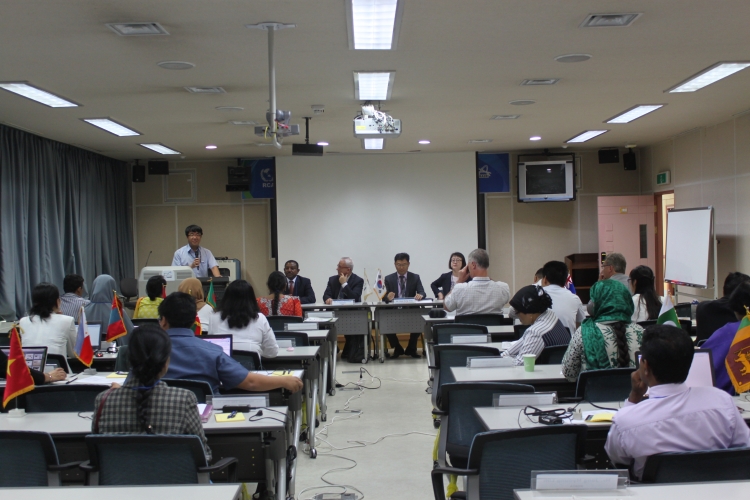The expansion of economic and social development is triggering increasing human and industrial activities which exacerbate the continuing trend of air pollution. Pollution is causing significant environmental and health problems in the Asia and the Pacific (RCA) region--residents of both mega-cities and small communities are exposed to high levels of air particulate matter pollution.
The importance of measuring the level of air pollution, as well as identifying the sources and contributing factors, cannot be underestimated. By studying these variables, researchers are able to supply environmental authorities with accurate, relevant information with which to make informed decisions and plan appropriate interventions for controlling and reducing the level of pollution. As the challenge transcends national borders and the potential for cooperation is significant, sustainable air pollution monitoring has been identified as a priority area in the Environment sector for the RCA Strategic Priorities 2012-2017.
The previous projects, including RAS7023, have made important contributions in promoting nuclear analytical techniques and introducing a monitoring programme for monitoring local, regional, and transboundary air particulate matter. This program helped in establishing a database of aerosol and pollution fingerprints, allowing regional resource units (RRUs) to assist Member States in their nuclear analytical services. The generated data has been used by the national policy-makers in a number of countries, and has led to the creation of the first regional database on fine and coarse air particulate matter, spanning at least 5 successive years.
The Regional Workshop is organized by IAEA in cooperation with the Government of Korea, through the Korea Atomic Energy Research Institute, and will deliberate its discussions from 8 to 12 June, 2015. 24 participants including Project Counterparts from 12 participating Member States in the Asia and the Pacific Region, representatives from partner institutions and IAEA officers from the Department of Technical Cooperation are in attendance.
The holding of this Workshop marks an important milestone for assessing the elemental databases, agreeing on the modalities for establishing and sharing a comprehensive regional database, and outlining the follow-up activities for a coordinated action.
The regional meeting is expected to discuss the status of elemental databases that have been established through earlier monitoring and analyses workshops. From there, a consensus will be built on the proposed solutions for organizing and sharing a comprehensive regional database and maintain quality. It will also consolidate the database and assess the regional commonalities concerning pollution sources and interpretation of the data at a regional level.
Moreover the workshop will also take stock of the lessons learned, and will plan ahead to streamline the project work in the remaining part of 2015 by introducing a draft design to ensure a meaningful completion of the ongoing project and seamless transition to the follow-up project in 2016.
The meeting was opened by Dr Hoan Sun Jung, Vice President and Chief Safety Officer of the Nuclear Safety and Security Department of KAERI, who welcomed participants and representatives of partner institutions. Dr Jung's statement was followed by that of Ms. Najat Mokhtar, Director Division for Asia and the Pacific of the IAEA delivered by the Programme Management Officer, Mr. Gashaw G. Wolde.



